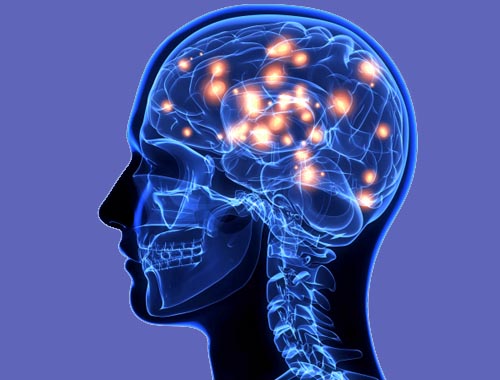Encephalitis

Published: 18 Jun 2025
ICD9: 323.41 ICD10: G05.3 ICD11: 1D00.Z
Encephalitis is an inflammation of the brain.
It's a serious condition that can cause a range of neurological problems.
Here's a breakdown:
![]() What it is: Literally meaning "inflammation of the brain," encephalitis occurs when the brain tissue becomes swollen and irritated.
What it is: Literally meaning "inflammation of the brain," encephalitis occurs when the brain tissue becomes swollen and irritated.
![]() Causes:
Causes:![]()

![]() Viral infections: This is the most common cause. Many different viruses can cause encephalitis, including:
Viral infections: This is the most common cause. Many different viruses can cause encephalitis, including:![]()

![]() Herpes simplex virus (HSV): A common cause of severe encephalitis.
Herpes simplex virus (HSV): A common cause of severe encephalitis.![]()

![]() Varicella-zoster virus (VZV): The virus that causes chickenpox and shingles.
Varicella-zoster virus (VZV): The virus that causes chickenpox and shingles.![]()

![]() Epstein-Barr virus (EBV): Causes mononucleosis (mono).
Epstein-Barr virus (EBV): Causes mononucleosis (mono).![]()

![]() Measles, mumps, and rubella viruses: Though less common due to vaccinations.
Measles, mumps, and rubella viruses: Though less common due to vaccinations.![]()

![]() Arboviruses: Viruses transmitted by mosquitoes, ticks, and other insects (e.g., West Nile virus, Zika virus, Japanese encephalitis virus).
Arboviruses: Viruses transmitted by mosquitoes, ticks, and other insects (e.g., West Nile virus, Zika virus, Japanese encephalitis virus).![]()

![]() Enteroviruses: Such as poliovirus and coxsackievirus.
Enteroviruses: Such as poliovirus and coxsackievirus.![]()

![]() Bacterial infections: Less common than viral causes, but can include bacteria that cause meningitis or Lyme disease.
Bacterial infections: Less common than viral causes, but can include bacteria that cause meningitis or Lyme disease.![]()

![]() Fungal infections: Rare, but can occur in people with weakened immune systems.
Fungal infections: Rare, but can occur in people with weakened immune systems.![]()

![]() Autoimmune disorders: In some cases, the body's immune system mistakenly attacks brain tissue, leading to encephalitis. This is called autoimmune encephalitis.
Autoimmune disorders: In some cases, the body's immune system mistakenly attacks brain tissue, leading to encephalitis. This is called autoimmune encephalitis.
![]() Symptoms: Symptoms can vary widely depending on the severity of the inflammation and the area of the brain affected. Common symptoms include:
Symptoms: Symptoms can vary widely depending on the severity of the inflammation and the area of the brain affected. Common symptoms include:![]()

![]() Flu-like symptoms: Fever, headache, muscle aches, fatigue
Flu-like symptoms: Fever, headache, muscle aches, fatigue![]()

![]() Neurological symptoms:
Neurological symptoms:![]()

![]() Confusion, disorientation
Confusion, disorientation![]()

![]() Seizures
Seizures![]()

![]() Changes in personality or behavior
Changes in personality or behavior![]()

![]() Difficulty speaking or understanding speech
Difficulty speaking or understanding speech![]()

![]() Weakness or paralysis in parts of the body
Weakness or paralysis in parts of the body![]()

![]() Vision problems
Vision problems![]()

![]() Loss of consciousness
Loss of consciousness![]()

![]() Memory problems
Memory problems![]()

![]() Stiff neck
Stiff neck
![]() Diagnosis: Diagnosis typically involves:
Diagnosis: Diagnosis typically involves:![]()

![]() Physical and neurological exam: To assess symptoms and neurological function.
Physical and neurological exam: To assess symptoms and neurological function.![]()

![]() Brain imaging: MRI or CT scans to look for inflammation or other abnormalities in the brain.
Brain imaging: MRI or CT scans to look for inflammation or other abnormalities in the brain.![]()

![]() Lumbar puncture (spinal tap): To collect cerebrospinal fluid (CSF) for analysis. This can help identify the cause of the encephalitis (e.g., viral infection, bacteria, or autoimmune antibodies).
Lumbar puncture (spinal tap): To collect cerebrospinal fluid (CSF) for analysis. This can help identify the cause of the encephalitis (e.g., viral infection, bacteria, or autoimmune antibodies).![]()

![]() Electroencephalogram (EEG): To measure brain activity and detect seizures.
Electroencephalogram (EEG): To measure brain activity and detect seizures.![]()

![]() Blood tests: To look for infections or autoimmune markers.
Blood tests: To look for infections or autoimmune markers.
![]() Treatment: Treatment depends on the cause of the encephalitis:
Treatment: Treatment depends on the cause of the encephalitis:![]()

![]() Antiviral medications: For viral encephalitis (e.g., acyclovir for herpes simplex encephalitis).
Antiviral medications: For viral encephalitis (e.g., acyclovir for herpes simplex encephalitis).![]()

![]() Antibiotics: For bacterial encephalitis.
Antibiotics: For bacterial encephalitis.![]()

![]() Antifungal medications: For fungal encephalitis.
Antifungal medications: For fungal encephalitis.![]()

![]() Immunosuppressants or corticosteroids: For autoimmune encephalitis to suppress the immune system.
Immunosuppressants or corticosteroids: For autoimmune encephalitis to suppress the immune system.![]()

![]() Supportive care: To manage symptoms such as fever, seizures, and breathing problems. This may include:
Supportive care: To manage symptoms such as fever, seizures, and breathing problems. This may include:![]()

![]() Pain relievers
Pain relievers![]()

![]() Anticonvulsants
Anticonvulsants![]()

![]() Mechanical ventilation
Mechanical ventilation
![]() Prognosis: The outcome of encephalitis varies. Some people recover fully, while others may have long-term neurological problems or disabilities. In severe cases, encephalitis can be fatal. Early diagnosis and treatment are important to improve the chances of a good outcome.
Prognosis: The outcome of encephalitis varies. Some people recover fully, while others may have long-term neurological problems or disabilities. In severe cases, encephalitis can be fatal. Early diagnosis and treatment are important to improve the chances of a good outcome.
Important Considerations:
![]() Encephalitis is a medical emergency. If you suspect that you or someone you know has encephalitis, seek immediate medical attention.
Encephalitis is a medical emergency. If you suspect that you or someone you know has encephalitis, seek immediate medical attention.
![]() Prevention: Vaccination against certain viruses (e.g., measles, mumps, rubella, chickenpox, Japanese encephalitis) can help prevent encephalitis. Avoiding mosquito bites (using insect repellent, wearing long sleeves and pants, and staying indoors during peak mosquito hours) can help prevent arbovirus infections.
Prevention: Vaccination against certain viruses (e.g., measles, mumps, rubella, chickenpox, Japanese encephalitis) can help prevent encephalitis. Avoiding mosquito bites (using insect repellent, wearing long sleeves and pants, and staying indoors during peak mosquito hours) can help prevent arbovirus infections.
In summary, encephalitis is a serious condition involving inflammation of the brain, usually due to a viral infection. Symptoms can range from flu-like symptoms to severe neurological problems. Early diagnosis and treatment are critical.